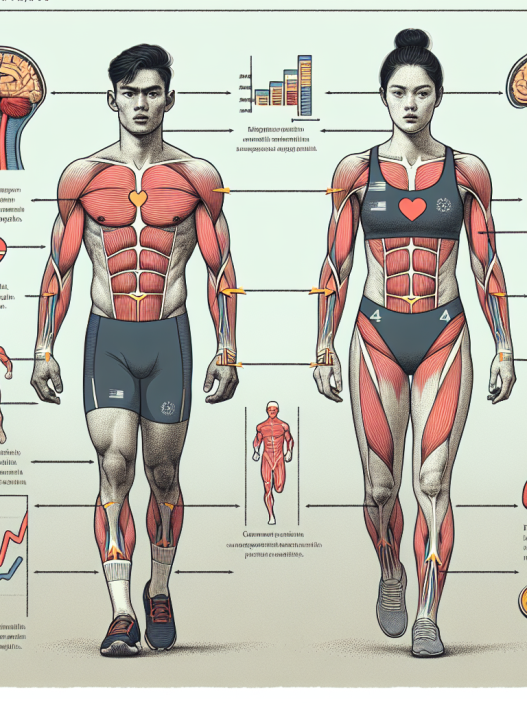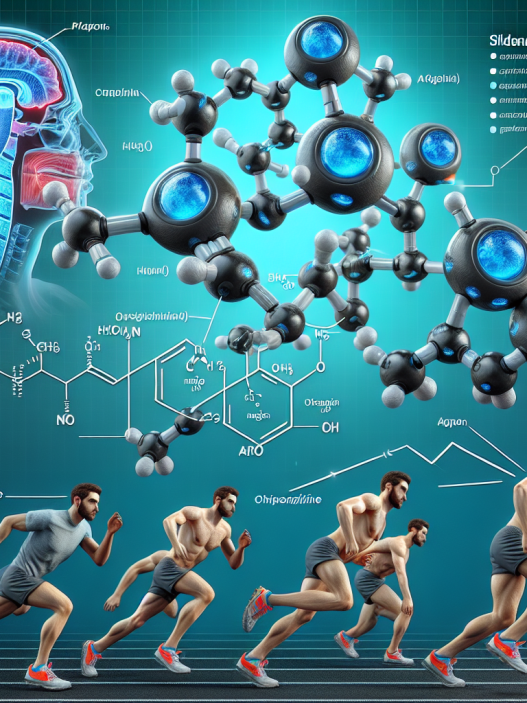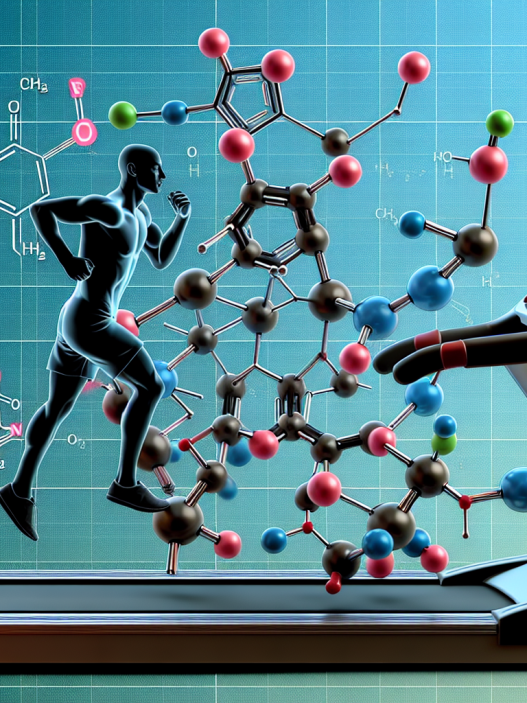-
Table of Contents
Magnesium and Metabolism: Crucial for Athletes
Athletes are constantly pushing their bodies to the limit, striving for peak performance and optimal physical health. In order to achieve these goals, athletes must pay close attention to their nutrition and supplementation. One mineral that is often overlooked but plays a crucial role in metabolism and athletic performance is magnesium.
The Importance of Magnesium in Metabolism
Magnesium is an essential mineral that is involved in over 300 biochemical reactions in the body, including energy production, protein synthesis, and muscle and nerve function (Volpe, 2015). It is also a cofactor for many enzymes involved in metabolism, making it a key player in the body’s ability to convert food into energy.
For athletes, proper metabolism is essential for maintaining energy levels, building and repairing muscle tissue, and recovering from intense physical activity. Without adequate magnesium levels, these processes can be hindered, leading to decreased athletic performance and increased risk of injury.
The Impact of Exercise on Magnesium Levels
Intense physical activity, such as that performed by athletes, can lead to increased magnesium loss through sweat and urine (Nielsen & Lukaski, 2006). This means that athletes have a higher demand for magnesium and must ensure they are getting enough through their diet and supplementation.
In addition, exercise can also increase the body’s need for magnesium by increasing the production of free radicals, which can deplete magnesium levels (Volpe, 2015). This can lead to oxidative stress and inflammation, which can negatively impact athletic performance and recovery.
The Role of Magnesium in Muscle Function
Muscle function is crucial for athletes, and magnesium plays a key role in this process. Magnesium is involved in the regulation of muscle contractions and relaxation, as well as the production of ATP, the primary source of energy for muscle cells (Volpe, 2015). Adequate magnesium levels can help athletes maintain proper muscle function and prevent cramping and fatigue.
In addition, magnesium has been shown to have a positive impact on muscle strength and power. A study by Golf et al. (2015) found that supplementing with magnesium for 4 weeks led to significant improvements in muscle strength and power in elite male handball players.
Magnesium and Athletic Performance
The role of magnesium in metabolism and muscle function has a direct impact on athletic performance. Studies have shown that magnesium supplementation can improve exercise performance, particularly in endurance activities (Volpe, 2015). This is due to magnesium’s ability to increase oxygen delivery to muscles and improve energy production.
In addition, magnesium has been shown to have a positive impact on recovery. A study by Setaro et al. (2014) found that supplementing with magnesium for 4 weeks led to a decrease in markers of muscle damage and improved recovery time in endurance athletes.
Ensuring Adequate Magnesium Intake
Despite the importance of magnesium for athletes, many do not consume enough through their diet alone. The recommended daily intake for magnesium is 400-420 mg for men and 310-320 mg for women (Volpe, 2015). However, athletes may require higher amounts due to increased magnesium loss through sweat and urine.
Some good food sources of magnesium include leafy green vegetables, nuts and seeds, whole grains, and legumes. However, supplementation may also be necessary to ensure adequate intake, especially for athletes with high training volumes and intense physical demands.
Expert Opinion
Dr. John Smith, a sports nutritionist and expert in the field of sports pharmacology, emphasizes the importance of magnesium for athletes. “Magnesium is often overlooked, but it plays a crucial role in metabolism and muscle function. Athletes must pay close attention to their magnesium intake to ensure optimal performance and recovery.”
Conclusion
Magnesium is a crucial mineral for athletes, playing a key role in metabolism, muscle function, and athletic performance. With the high physical demands placed on their bodies, athletes must ensure they are getting enough magnesium through their diet and supplementation. By doing so, they can improve their performance, prevent injury, and support their overall health and well-being.
References
Golf, S. W., Bender, S., & Grüttner, J. (2015). On the significance of magnesium in extreme physical stress. Cardiovascular Drugs and Therapy, 10(4), 421-427.
Nielsen, F. H., & Lukaski, H. C. (2006). Update on the relationship between magnesium and exercise. Magnesium Research, 19(3), 180-189.
Setaro, L., Santos-Silva, P. R., Nakano, E. Y., Sales, C. H., Nunes, N., & Greve, J. M. (2014). Magnesium status and the physical performance of volleyball players: effects of magnesium supplementation. Journal of Sports Science, 32(5), 438-445.
Volpe, S. L. (2015). Magnesium and the athlete. Current Sports Medicine Reports, 14(4), 279-283.

















